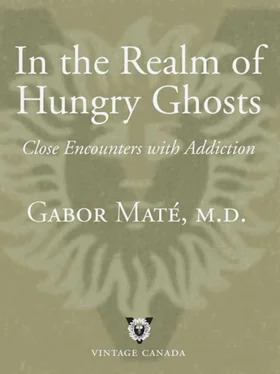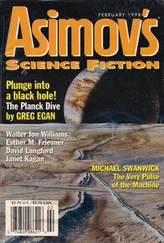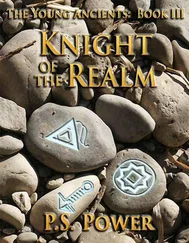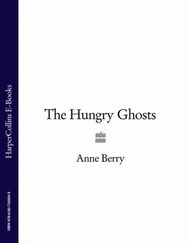I’ve been to Sikora’s several times a week in the past two months—not to mention brief forays to the Magic Flute on 4 thAvenue and lightning visits to Sam the Record Man and HMV in Toronto during a recent speaking tour, to say nothing of the closing-out sale at Tower Records in New York. As of now, mid-February, I’ve blown two thousand dollars on classical CDs since the New Year. I’ve broken my word to stop bingeing, pledged with maximal contrition to my wife, Rae, after my thousand-dollar pre-Christmas and Boxing Day splurge. Day in, day out I’ve obsessed about what music to get and spent countless hours poring over write-ups on classical music websites—time that could have been devoted to family or to writing this book with its rapidly approaching deadline. But as soon as the reviewer says something like “no self-respecting lover of symphonic/choral/piano music should be without this set,” I’m done for.
Suddenly I cannot imagine my life without this Dvorák symphony cycle or that version of Bach’s Mass in B Minor, or this interpretation, on period instruments, of Haydn’s Paris Symphonies. I cannot abide another moment without Rachmaninov’s Preludes, or Le Nozze di Figaro , Bachianas Brasileiras , a collection of Shostakovich’s chamber music; yet another fourteen-CD version—my fifth—of Wagner’s Ring Cycle; new issues of Bach’s solo violin or solo cello pieces. This very day I must have Locatelli’s L’Arte del Violino , Rautavaara’s Garden of Spaces , the Diabelli Variations, Pierre Hantaï’s latest rendition of the Goldberg Variations on harpsichord, Schnittke’s or Henze’s or Mozart’s complete violin concertos, my third version…I read and write, eat and even sleep with music in my ears. I cannot walk the dog without a sonata, a symphony, an aria sounding on the earphones. My thoughts and feelings and inner conversations about recorded classical music are what I wake up to in the morning, and they tuck me in at night.
Beethoven composed thirty-two piano sonatas. I own five complete recordings of them—having discarded twice as many, some repurchased and relinquished more than once. Stored away somewhere in our attic are two sets I will never listen to again. I have five complete versions of the sixteen Beethoven string quartets and six collections of the nine symphonies. At one time or another I’ve owned almost all the recorded Beethoven symphony cycles issued on CD, including the three out-of-favour sets also currently hiding in the attic. If at this very moment I were to begin to play all the collected Beethoven works on my shelves—and if I did nothing else—it would take me weeks to hear it all. And that’s just Beethoven.
Many CDs on my shelves have made only cursory visits to my stereo’s disc drive, if I’ve listened to them at all. Others have never had a hearing, languishing as orphans on my shelves.
Rae is suspicious. “Have you been obsessing and buying?” she’s asked me a number of times in the past few weeks. I look directly at my life partner of thirty-nine years and I lie. I tell myself I don’t want to hurt her. Nonsense. I fear losing her affection. I don’t want to look bad in her eyes. I’m afraid of her anger. That’s what I don’t want.
I’ve given hints—almost as if I wanted to be caught. “You look stressed,” Rae remarks one evening in early January. “Yes, it’s all these CDs,” I begin to reply. She eyes me: my embarrassment is instant and palpable. “I mean, all these CVs I have to email for my speaking engagements.” A clumsy recovery. I’m guilty as sin and I must look it. How I manage to escape is beyond me. For a moment, I consider confessing as, eventually, I always do.
The following week, over morning coffee, I look up from the newspaper. “Ah,” I remark to Rae, “the Vancouver Opera is doing Don Giovanni in March.”
“ Don Giovanni, ” Rae muses. “I don’t know that one. What’s it about?”
“The Don Juan story. The obsessive womanizer. He’s this creative, charming and energetic man. A daring adventurer, but a coward morally, who never finds peace within. His erotic passion is insatiable: no matter how often it’s consummated, it leaves him restless and dissatisfied. And his poetic talent and his drive for mastery only serve his relentless need to possess. It’s always about the next acquisition—he even keeps a notebook listing his amorous conquests. He has many, many opportunities for salvation, but he spurns them all. He torments others and sacrifices his own mortal soul. He scorns repentance, and in the end, he’s dragged down to Hell.”
Rae glances at me with something like surprise—or is it a knowing smirk? “You described that so eloquently,” she says. “You brought the character alive. He’s obviously close to your heart.”
True, he is—I’ve purchased four versions of this Mozart masterpiece in the last month, adding to the two already in my collection. I’ve never listened to any of them from start to finish. And I’ve been lying, withholding all this from Rae. Actually, I’m a small-time, far less glamorous Don Giovanni—I cheat with operas, not women.

Some may find it difficult to understand how the desire to own six versions of Don Giovanni can be called an addiction. What’s wrong with loving music, with having a passion for great art, with the search for the sublime in aesthetic experience? We humans need art and beauty in our lives. In fact, that’s what makes us human. What distinguishes us from our defunct Neanderthal cousins is Homo sapiens’ capacity for symbolic expression, our ability to represent our experience in abstract terms. That part of the prefrontal cortex didn’t develop in the Neanderthal brain. Their species couldn’t have produced a Mozart had they survived another million years. So, really, isn’t it human to want beauty? To crave it, even?
And I do adore the music. It’s both the most abstract form of art, capable of communicating without words or visual images, and the most immediate. For me at least, it’s the purest form of artistic expression. With or without words, it speaks eloquently of loss and joy, doubt and truth, despair and inspiration, earthly lust and the transcendent divine. Music challenges me, thrills me, fills me, moves me, softens my heart. It releases streams of emotion in me that I dammed up long ago in the rest of my life. As Thomas De Quincey writes in Confessions of an English Opium Eater, music has the power to render life’s passions “exalted, spiritualized, sublimed”—even if De Quincey thought he had to take opium to appreciate this.
So, yes, I am passionate about music—but I’m also addicted, which is an altogether different ontological boxed set.
Addictions, even as they resemble normal human yearnings, are more about desire than attainment. In the addicted mode, the emotional charge is in the pursuit and the acquisition of the desired object, not in the possession and enjoyment of it. The greatest pleasure is in the momentary satisfaction of yearning.
The fundamental addiction is to the fleeting experience of not being addicted. The addict craves the absence of the craving state. For a brief moment he’s liberated from emptiness, from boredom, from lack of meaning, from yearning, from being driven or from pain. He is free. His enslavement to the external—the substance, the object or the activity—consists of the impossibility, in his mind, of finding within himself the freedom from longing or irritability. “I want nothing and fear nothing,” said Zorba the Greek. “I’m free.” There are not many Zorbas amongst us.
In my addicted mode the music still thrills, but it cannot release me from the need to pursue and acquire more and more. Its fruit is not joy but disaffection. With each CD I delude myself that now my collection will be complete. If only I could have that one—just one more, one more time, I could rest satisfied. So runs the illusion. “‘Just one more’ is the binding factor in the circle of suffering,” writes the Buddhist monk and teacher Sakyong Mipham. 1
Читать дальше













